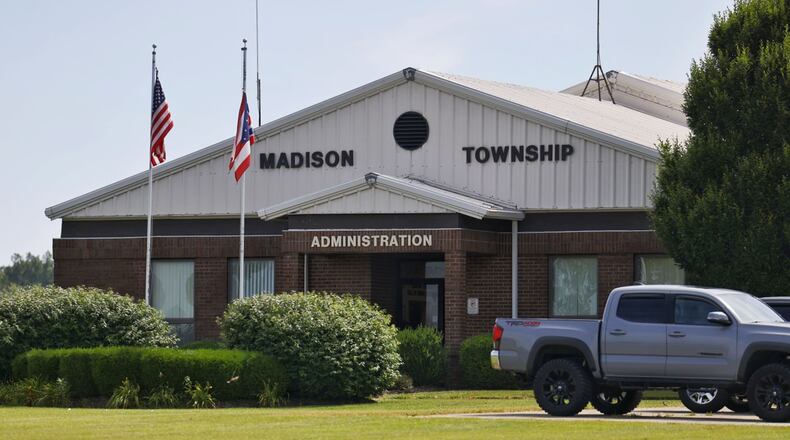The total, which was repaid as part of the audit, included $24,395 in fees and penalties from the Internal Revenue Service for late filings and $749 in late fees and interest charges for credit card and utilities payments, the state said in a release.
“The payment of late fees and penalties due to the inability of the fiscal officer to make timely payment is not a proper public purpose,” the audit report read.
Schenck paid the full amount to Madison Twp., via a cashier’s check, in June 2022, the state said. Schenck, who has served as fiscal officer for 23 years, makes $24,000 a year, she said.
Her term expires on March 31, 2024 and she doesn’t plan to seek re-election, she said.
She also serves as Middletown’s clerk of council.
Jeff Willoughby, president of the Madison Twp. board of trustees, said the township needs to review its procedures so this type of error doesn’t repeat. Residents must have faith in the township leadership, he said.
“It doesn’t look good,” he said of the mismanagement.
Willoughby, who was appointed to his position in January 2021, then elected to a four-year term in November 2021, said residents may assume money was misspent, though that’s not the case.
Schenck said in 2018, when some of the errors occurred, she was dealing with personal issues.
A cancerous mass was removed from her chest wall and her son, Sam, then 20, was diagnosed with Guillain-Barre syndrome and was temporarily paralyzed. When told about her son’s illness, Schenck said she rushed home from her treatments at the Chicago Cancer Center of America.
He was on life support for 11 days at University of Cincinnati Hospital.
“I got behind,” Schenck said of her fiscal responsibilities.
She called 2018 “the most difficult year of my life.”
The money never was missing, and now Madison Twp. is “whole,” according to Schenck.
Schenck, 53, said she’s disappointed she brought “shame” to her family.
“I did my very best,” said Schenk, who said she probably should have stepped down.
The issue was one of several noted in auditors’ review of the township’s 2018 and 2019 finances, including:
- The township made payments to United Health Care totaling more than $150,000 and disbursed an additional $101,330 in “healthcare costs,” though support documentation was not provided to auditors for either. The fiscal officer and two township trustees also were reimbursed for health care costs over and above the annual plan limits.
- The township established a Healthcare Reimbursement Arrangement (HRA) that violated certain provisions of the federal Affordable Care Act. Additionally, “… there was a trustee who used the HRA reimbursement to purchase an individual (i.e. non-group) plan on the marketplace. The Fiscal Officer used the HRA as her only insurance coverage. These reimbursement practices are not lawful….”
- In a separate management letter, auditors noted, “The township did not submit remittances of withholdings in full or on a timely basis for 2017 in the amount of $1,423 for school district tax. This resulted in a lien being placed on the township property that was not released until May 5, 2019.”
- The township did not provide documentation to verify state income tax withholdings and Public Employee Retirement System remittances were paid in September 2018 and March 2019. According to the report, “Failure to file, pay, and report the withholdings could result in liabilities, penalties, and interest levied against the township.”
About the Author

